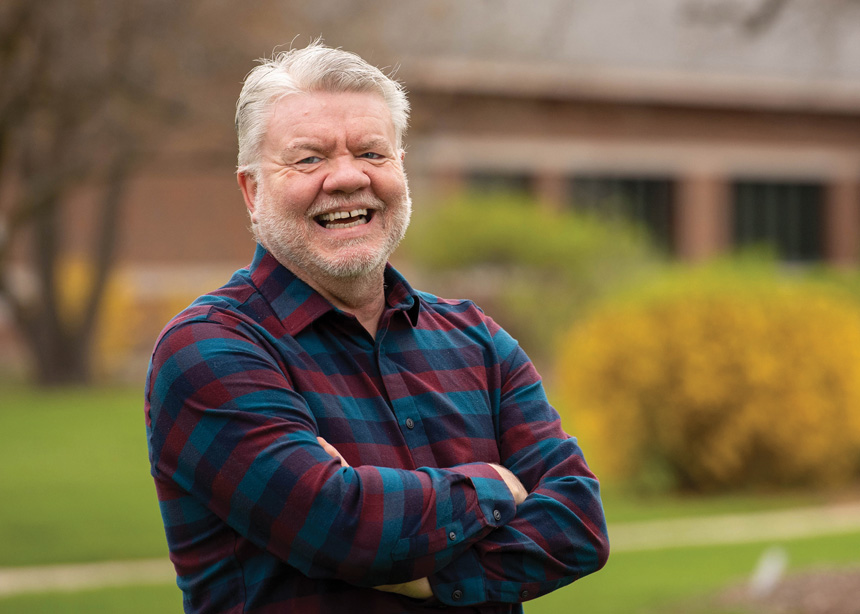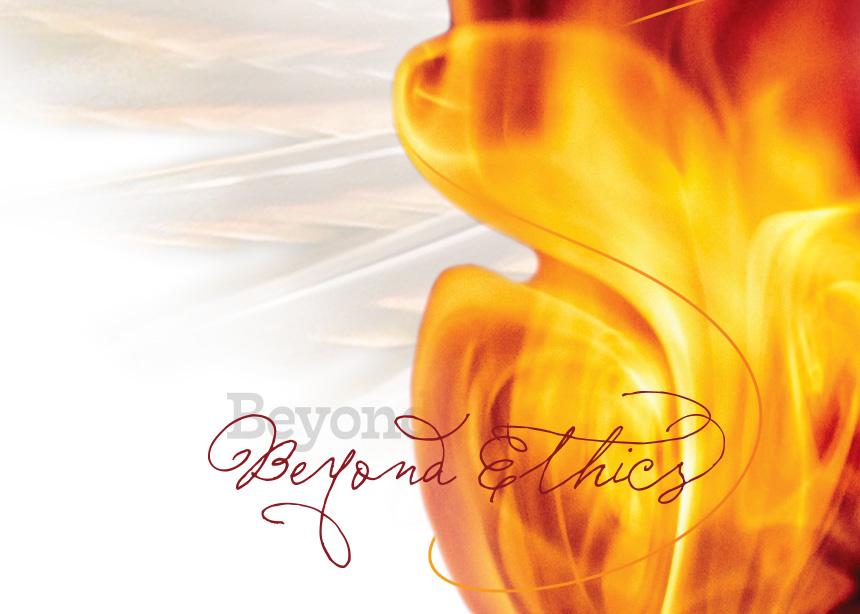Allan Rudy-Froese says he “got sick” of hearing sermons that spoke more about “what we should do” than the life of faith.
That included his own sermons. Ethics overshadowed God.
Rudy-Froese, who is now associate professor of Christian proclamation at Anabaptist Mennonite Biblical Seminary (AMBS), recalls meeting with a young person who sometimes attended Rockway Mennonite Church in Kitchener, Ontario, where Rudy-Froese pastored from 1992 to 2000. She said, “Thanks for all those great sermons,” he recalls. Her subsequent comment hit Rudy-Froese hard: “I don’t really believe in God,” she said, “but I really want to follow Jesus.”
The fact that his sermons resonated with a person who did not believe in God underlined for Rudy-Froese his own unease with his preaching.
During that period, he was studying part-time at a Lutheran seminary. There, he heard much about grace. In that setting, it was “not what you are doing but what God or Jesus or the Spirit is doing,” he says.
In contrast, he says of his own preaching at the time: “God’s grace was really quite marginal.” The theology in his Mennonite context was “pretty humanist.”
Rudy-Froese uses a simple example to illustrate the distinction between a focus on ethics and divine grace. The story of the Good Samaritan can be read as a practical example to follow, or it can be read as a beautiful account of the grace God extends to all of us who, in various ways, lie wounded beside the road.
It can be morally instructive, or it can fill us with gratitude and awareness of God’s work in the world.

Or both, but Rudy-Froese says Mennonites tend to be too quick to move past the grace to the moral imperative.
“Can we stay for a moment with what God has done for us . . . instead of this knee-jerk pragmatic response?” he asks.
“What does it mean to pause longer on the grace, the gift?” What if a sermon just ended on the good news, with no moral of the story at the end?
What does a shift of focus from ethics to grace look like in Rudy-Froese’s life?
“I walk around being exceedingly grateful for what I have been given. Our family—we have been given many gifts, and we appreciate those and that teaches us also to be generous with others,” he says.
Though he uses words like “transcendent” and “mystical,” Rudy-Froese is no stranger to the flesh-and-blood realities of peace and justice. “I don’t know if I’m an activist, but I’m involved,” he says in relation to the work of his faith community.
How does an emphasis on grace alter the nature of his involvement?
“I might have burned out from trying to do good things in the world,” he says.
“We see a lot of burnout from folks who just do, do, do, do. How can we do
[the work] in the long term? How can we wait for God’s grace to empower us, instead of doing it as functional atheists or good humanists?”
Rudy-Froese says one of the gifts AMBS offers action-oriented students is an invitation to slow down and be nurtured by the Spirit of God and by practices, including contemplative practices, “so they can be in it for the long haul.”
Rudy-Froese says we Mennonites tend to be impatient and unsettled about grace. “It’s hard to find a Mennonite theologian who can write more than two or three paragraphs on grace,” he says.
Why the impatience?
In part, he links this impatience to a loss of a sense of the transcendent.
Referring to the work of Charles Taylor—a preeminent Canadian Catholic thinker and author of A Secular Age—Rudy-Froese says we live in “such an immanent frame.” In our age of reason, “it is really hard for us intellectually to conceive of God at all, and then to conceive of God as the giver of gifts.”
Secondly, he says we have difficulty accepting gifts. “We don’t know what to do with gifts.” Including the gift of grace.
Rudy-Froese notes a study about random acts of kindness that found a significant percentage of recipients of random kindness became angry. They needed to pay back the favour to even out the ledger
With the story of the Samaritan, Rudy-Froese says we might stop a while to consider what has been given—that someone has stooped down to pick up the man and put him on a donkey. We are being lifted up. Jesus is healing us.
After you “stay there for a little while,” Rudy-Froese says, you can then consider the ethics.






Add new comment
Canadian Mennonite invites comments and encourages constructive discussion about our content. Actual full names (first and last) are required. Comments are moderated and may be edited. They will not appear online until approved and will be posted during business hours. Some comments may be reproduced in print.